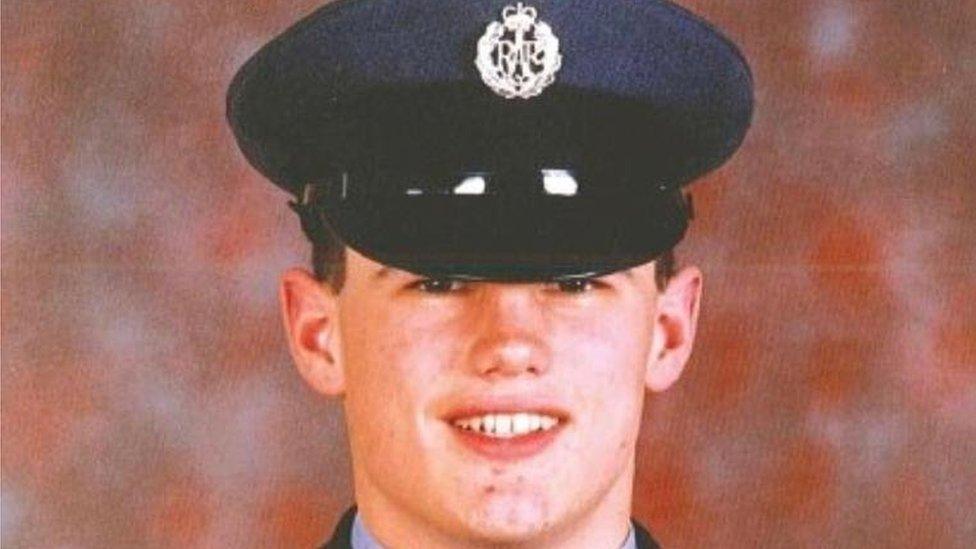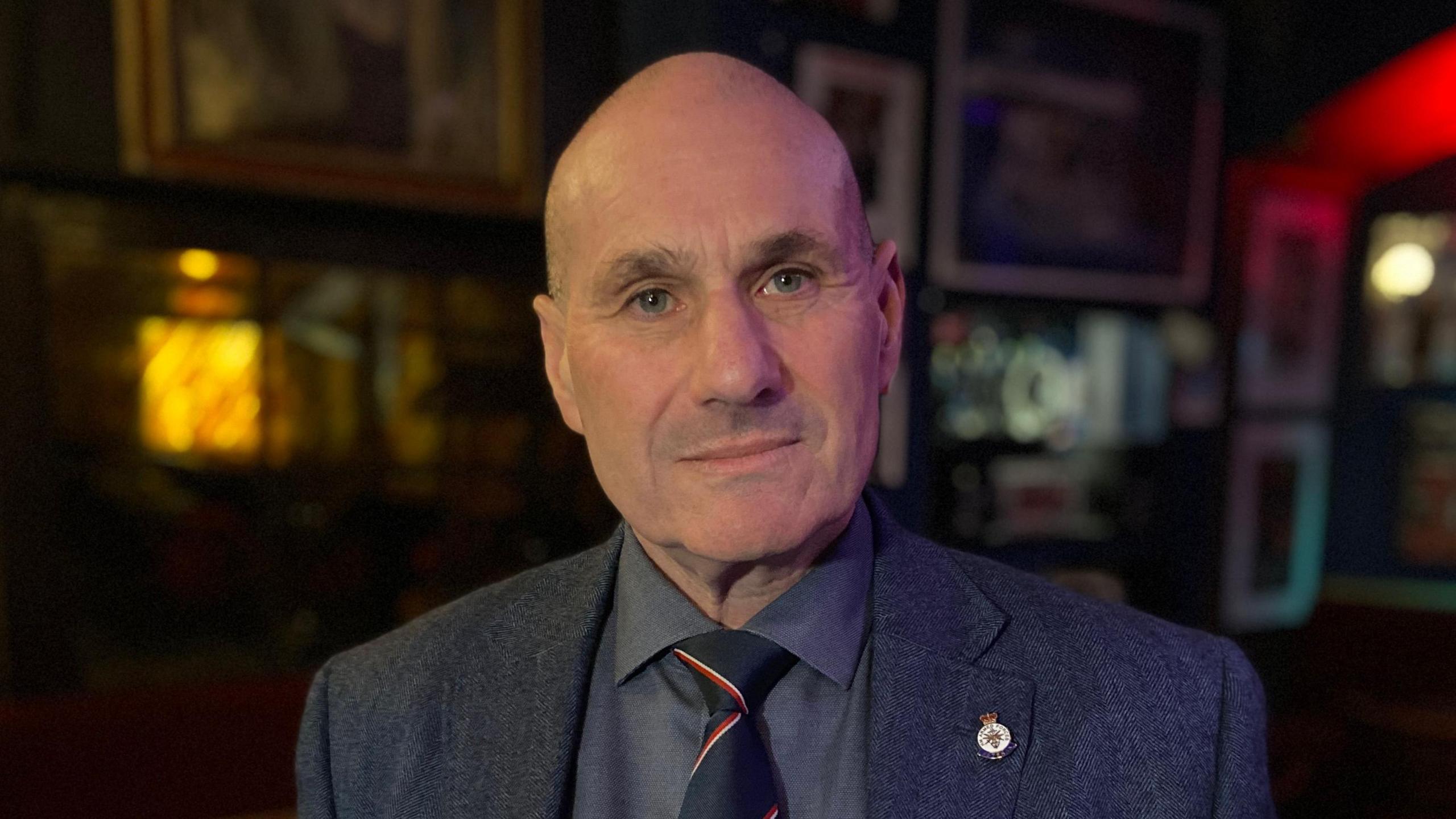Work inspired by military's LGBT ban to be lit up
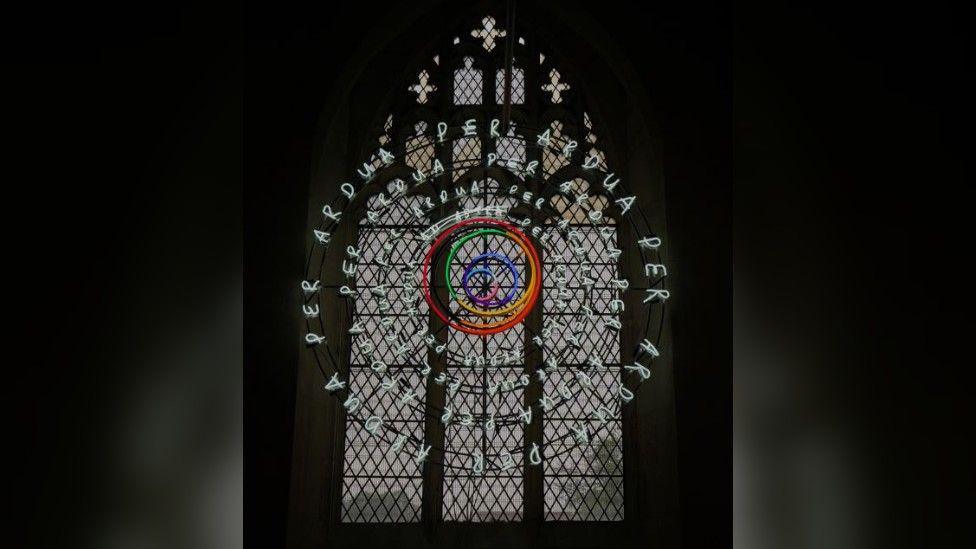
The work reflects on the ban on gay people serving in the military before 2000
- Published
A piece of art representing the ban on LGBT people serving in the military will be lit up on Wednesday to mark 25 years of the policy being dropped.
Grimsby artist Annabel McCourt's neon artwork, Per Ardua, will be switched on by Pride group Rainbow Youth at the 20-21 Visual Arts Centre in Scunthorpe.
Ms McCourt, 49, who is gay and grew up surrounded by the sounds of "A10 Tank Busters punctuating my childhood bedroom", said those factors had shaped and influenced her work.
"Per Ardua" is a reference to the RAF motto "Per ardua ad astra", which translates as "Through adversity to the stars".
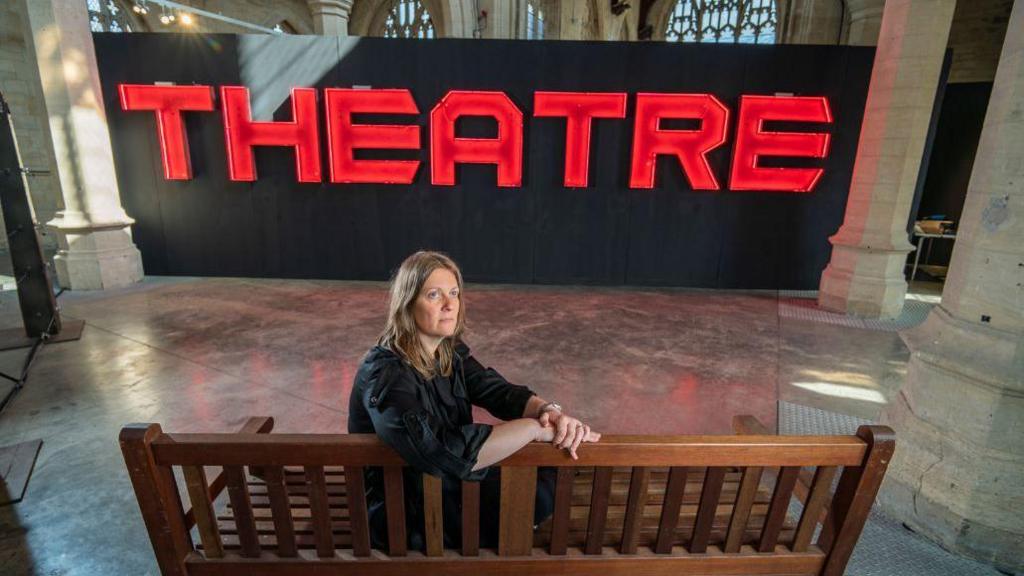
THEATRE of War questions our role as spectators of global conflicts
Homosexuality was illegal in the armed forces until 2000, and Ms McCourt crossed out "ad astra" in her work, in a reference to the stars being unattainable for LGBT personnel before the ban was lifted.
The spiral design represents a "constant loop of adversity", the artist said.
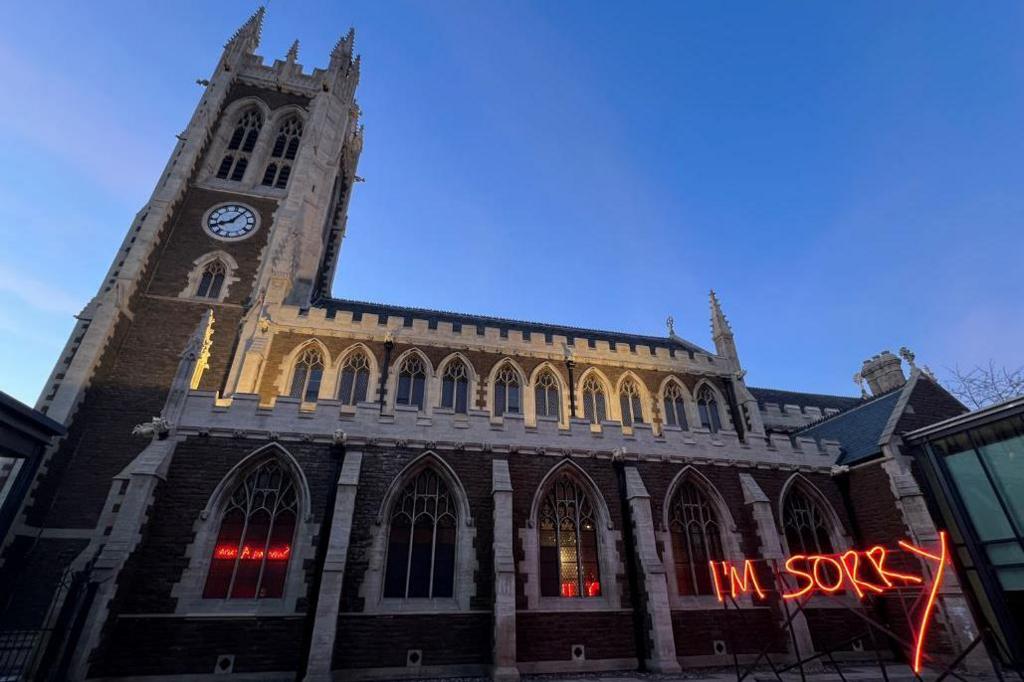
The exhibitions by Annabel McCourt are being held in Scunthorpe
The ban was repealed after a campaign led by a group of veterans called the Rank Outsiders.
In 2023, Rishi Sunak, who was prime minister at the time, apologised for the historical treatment of LGBT veterans who were sacked or forced out of the military for being gay.
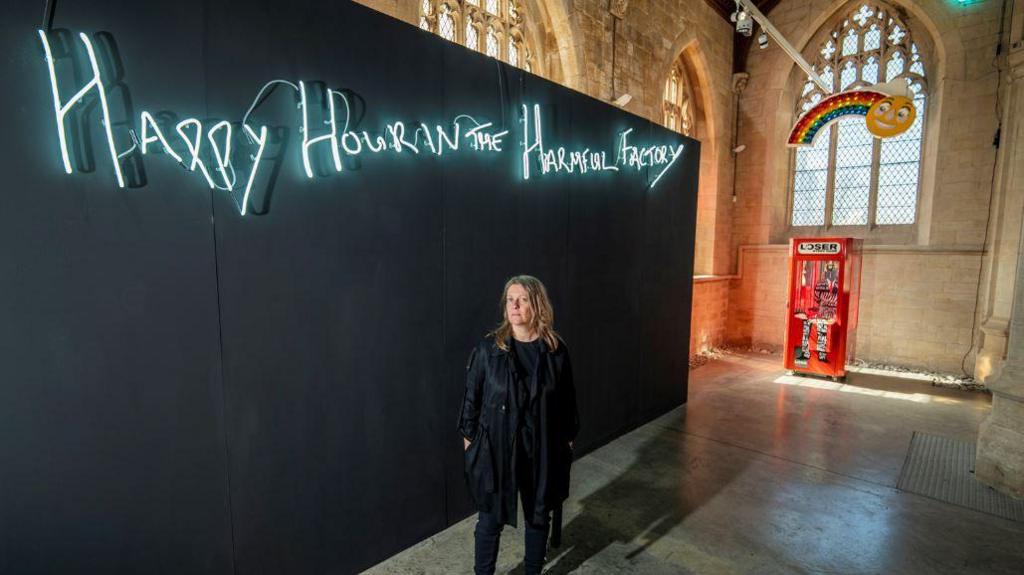
Happy Hour in the Harmful Factory represents "a feminist response to the futile optimism of milk as a cure-all", said Annabel McCourt
Ms McCourt said she grew up with an interest in aeroplanes along with "the conflict felt as a queer kid growing up in Bomber County".
She added: "I remember entering an armed forces recruitment office in my teenage years. It was a terrifying experience for fear of being 'found out'.
"Thankfully, I eventually discovered my calling in the arts."
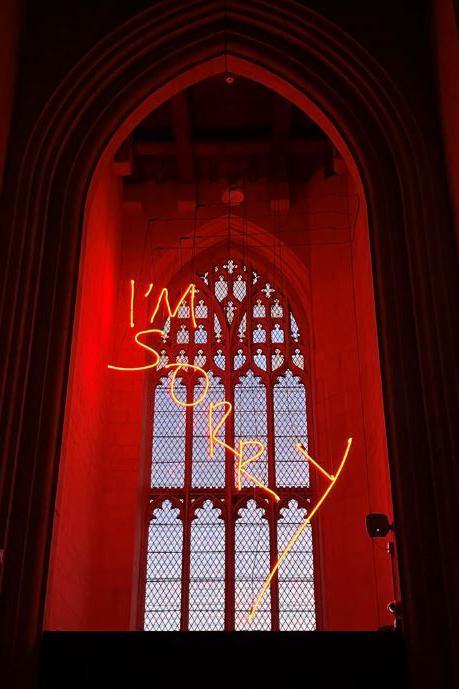
I'm Sorry explores grief and personal healing, inspired by Annabel McCourt's experience of losing her father
Per Ardua will run alongside Ms McCourt's I'm Sorry exhibition until 5 July, featuring large-scale interactive installations combining sound, neon, industrial materials, film and photography.
"I've spent my life gathering and collecting strange bits of rust, neon, ready-mades and arcade machines thinking I'm completely mad, but when you see it all come together, it makes sense," she said.
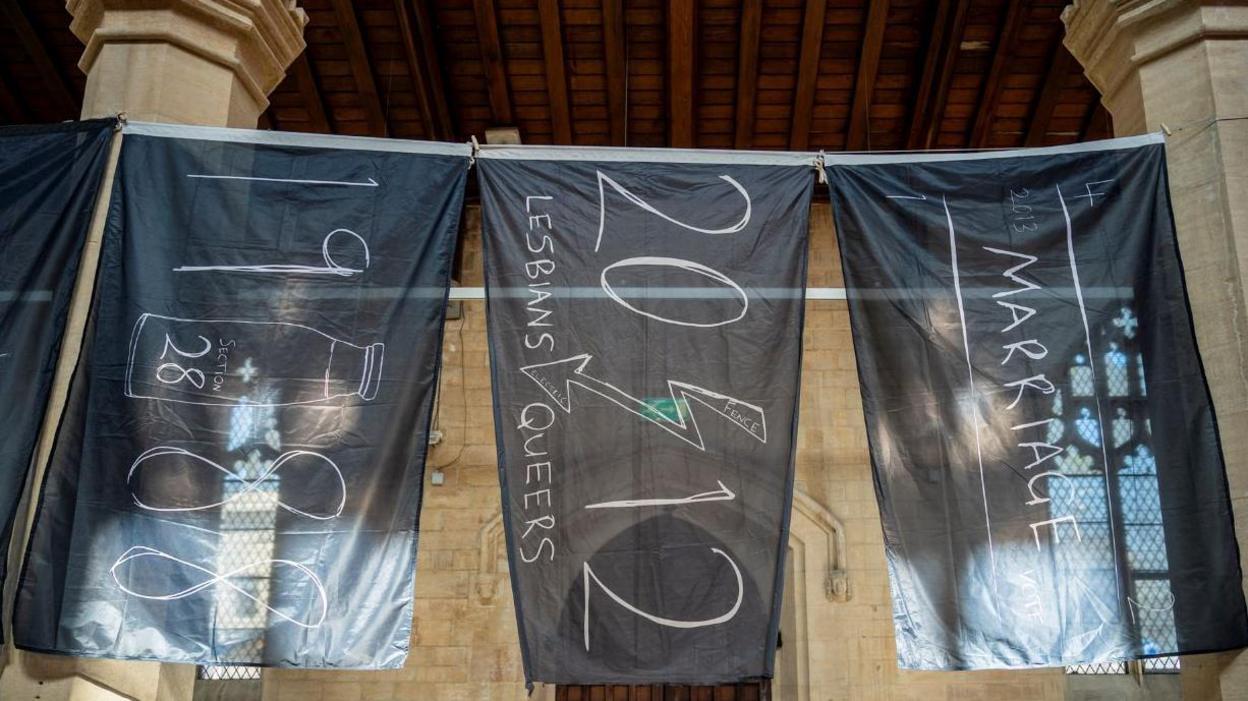
Annabel McCourt describes her exhibitions as "dystopian" but with some joy
Per Ardua will be switched on at the 20-21 Visual Arts Centre at 18:00 BST.
Listen to highlights from Lincolnshire on BBC Sounds, watch the latest episode of Look North or tell us about a story you think we should be covering here, external.
Related topics
Related stories
- Published19 July 2023
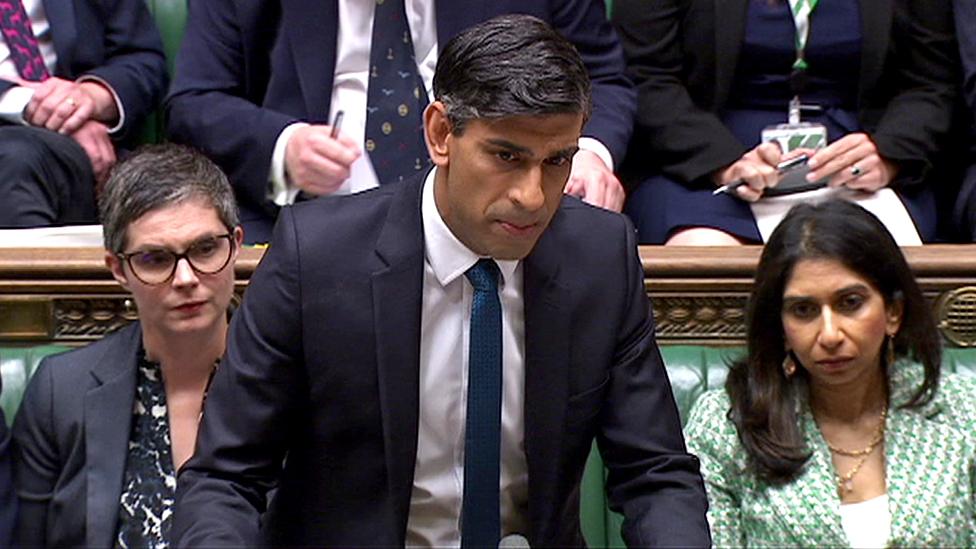
- Published19 January 2022
